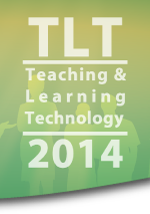|
Dr. Rebecca Brent
President of Education Designs, Inc.

|
Connection and Engagement in a
Crowded Online World
“We’re hardwired for connection, curiosity and engagement.” (Brene Brown)
What does that quote—especially the parts about connection and engagement—mean for educators in this age of auditorium-packed classes and online courses taken by hundreds of thousands of students? To be effective teachers, we have to find ways to make connections with our students—the ones in front of us with faces we can barely make out in the distance and those out in cyberspace with faces we can’t see at all. But how do we do it? How do we engage students, motivating them to learn, complete their degrees, and become the kinds of professionals needed to tackle the big problems in our world? And what about us? How do we get those same human needs for connection met as our academic workplace increasingly conforms to a for-profit business model?
In this interactive presentation, you’ll have the chance to think about your connection with students and identify ways you can strengthen it, engaging and motivating your live classroom and online students. You’ll also have the chance to think about your department and what you can do to make it a more connected, supportive, and productive workplace.
Time, Date, and Location: 10:30 a.m. - Noon, Thursday, March 13, BCH 125
Dr. Rebecca Brent is President of Education Designs, Inc., a consulting firm in Cary, North Carolina. Her areas of expertise are faculty development in engineering and the sciences, evaluation of educational programs at both precollege and college levels, and classroom uses of instructional technology.
Dr. Brent received her B.A. in Music Education from Millsaps College in 1978, her M.Ed. from Mississippi State University in 1981, and her Ed.D. from Auburn University in 1988, and she holds a Certificate in Evaluation Practice from the Evaluators’ Institute at George Washington University. She taught for seven years in the Mobile, Alabama and Jackson, Mississippi public school systems prior to undertaking her doctoral program, and after receiving the doctorate, taught undergraduate and graduate courses in classroom organization and management, instructional planning, and language arts methods at Florida Southern College and East Carolina University. She left ECU in 1996 as a tenured associate professor to go into private consulting. From 1997 to 2003, she directed the NSF-sponsored SUCCEED Coalition faculty development program, and she currently coordinates faculty development activities for the North Carolina State University College of Engineering.
Dr. Brent has authored numerous publications on instructional methods and faculty development in higher education, mentoring and supporting new faculty members, classroom applications of technology in K-12 and college, peer review of teaching, and a variety of other topics in teacher education. Together with her husband, Dr. Richard Felder, she has presented several hundred faculty development workshops on campuses throughout the United States and abroad, and she co-directs the National Effective Teaching Institute, a teaching workshop presented annually under the auspices of the American Society for Engineering Education.
|
|
Dr. Irina Ivliyeva
Associate Professor of Arts, Language (Russian), & Philosophy
Missouri S&T

|
C3: The Crucial Variables for
Successful Student Engagement
Factors both internal to students (intelligence and personality traits) and external to students (environment) influence the quantity and quality of learning. The most significant components affecting student engagement, retention, and academic performance are the quality and extent of the students’ interaction with faculty.
We will examine the application of sound pedagogical strategies found in The Seven Principles of Good Teaching (1996) in practical everyday classroom activities set in internet-based, multi-user, and interactive environments. In addition to this, we will demonstrate the impact of three crucial variables - personal contact, effective communication, and meaningful content – on student engagement. Lastly, we will illustrate how improved technology offers new instructional options that can help to produce highly interactive learning environments and provide effective support for the enhancement of student motivation and engagement.
Time, Date, and Location: Noon - 1:30 p.m., Friday, March 14, BCH 125
Dr. Irina Ivliyeva, Associate Professor of Russian, has been teaching foreign languages, their acquisition methods, and cross-cultural communication for 24 years. Irina is a recipient of sixteen UMR/Missouri S&T Outstanding Teaching Awards. She has been strongly interested in multimedia approaches to teaching, including e-portfolio development, website design and implementation, PC-based placement testing in a hybrid classroom, learning strategies with CALL, and language laboratory management.
|



